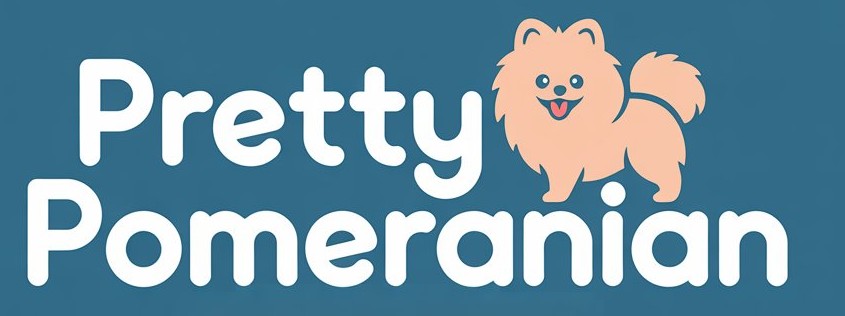Watching your fluffy Pomeranian enter their golden years can tug at your heartstrings, especially when you notice they’re moving a bit slower or their coat isn’t quite as lustrous as it once was. The supplement aisle at the pet store suddenly becomes incredibly tempting, promising miraculous transformations for your aging companion.
Here are the three essential takeaways about supplements for senior Pomeranians:
- Joint support supplements containing glucosamine and chondroitin can genuinely help with mobility issues common in aging Poms
- Omega-3 fatty acids provide multiple benefits for coat, brain function, and inflammation reduction
- Most commercial dog foods already contain adequate vitamins, making additional supplementation often unnecessary
My Journey with Sash’s Senior Years
When my beloved Sash turned eight, I noticed subtle changes that made my heart sink a little. The enthusiastic bounce up onto the couch became more of a calculated leap, and those silky orange locks seemed to lose some of their puppyhood shine. Like many Pomeranian parents, I found myself standing in the pet store supplement section, overwhelmed by bottles promising everything from “puppy-like energy” to “miracle joint relief.”
After consulting with our veterinarian Dr. Martinez, who specializes in small breed dogs, I learned that not all supplements are created equal. “Pomeranians have unique nutritional needs due to their size and genetic predispositions,” she explained. “The key is identifying what your specific dog actually needs rather than throwing supplements at every perceived problem.”
The Supplements That Actually Make a Difference
Joint Support: The Real Game-Changer
Pomeranians are notorious for developing luxating patella (kneecap dislocation) and other joint issues as they age. After Sash started showing reluctance to jump and occasional limping, we introduced a high-quality glucosamine and chondroitin supplement specifically formulated for small breeds.
The transformation wasn’t overnight – it took about six weeks – but the improvement was undeniable. Sash regained confidence in her movements and returned to her favorite hobby of dramatically flinging herself onto forbidden furniture. The American Kennel Club recommends looking for supplements that also contain MSM (methylsulfonylmethane) for additional anti-inflammatory benefits.
Omega-3 Fatty Acids: The Multi-Tasker
Fish oil supplements became my secret weapon against multiple age-related concerns. Within two months of adding a high-quality omega-3 supplement to Sash’s routine, her coat regained much of its former glory, and I noticed improved alertness during our training sessions.
However, here’s the catch – not all fish oils are safe for small dogs. I learned this the hard way when Sash experienced digestive upset from a human-grade supplement I’d mistakenly given her. Always choose supplements specifically formulated for dogs, with appropriate dosing for small breeds.
The Supplements You Probably Don’t Need
Despite marketing claims, most senior Pomeranians don’t require additional vitamins if they’re eating a high-quality commercial dog food. I fell into this trap initially, purchasing an expensive multivitamin that our vet later confirmed was redundant. Premium dog foods are already fortified with essential vitamins and minerals in appropriate ratios.
Probiotics represent another gray area. While they can benefit dogs with specific digestive issues, healthy senior Poms typically don’t need them unless recommended by a veterinarian for a particular condition.
What to Consider Before Supplementing
Before adding anything to your Pomeranian’s regimen, consider these factors:
- Current diet quality – premium foods may eliminate the need for basic supplements
- Specific health concerns – target supplements to actual problems, not imagined ones
- Vet consultation – especially important for Poms with existing health conditions
- Quality sourcing – look for supplements with third-party testing and clear ingredient lists
The Pomeranian-Specific Considerations
Our breed’s tiny size means dosing becomes critical. What works for a Labrador could be harmful for a six-pound Pom. I always calculate supplements based on Sash’s exact weight and choose products with small-dog-specific formulations when possible.
Additionally, Pomeranians’ notorious picky eating habits can make supplement administration challenging. Liquid forms or soft chews often work better than large pills that our dramatic little dogs will inevitably spit out with great theatrical flair.
Red Flags and Realistic Expectations
Beware of supplements promising miraculous overnight transformations. Quality supplements work gradually, typically requiring 4-8 weeks to show noticeable effects. If a product claims to reverse aging or cure serious conditions, run the other direction.
I also learned to watch for adverse reactions. When Sash developed mild stomach upset after starting a new supplement, we immediately discontinued it and consulted our vet. Senior dogs can be more sensitive to changes, making gradual introduction essential.
The Bottom Line on Senior Pom Supplements
After navigating Sash’s senior years and consulting with veterinary professionals, I’ve concluded that targeted supplementation can genuinely improve quality of life for aging Pomeranians. Joint support and omega-3 fatty acids top my recommendation list, while most other supplements fall into the “nice to have but not necessary” category.
The real magic happens when you combine appropriate supplementation with regular veterinary care, proper nutrition, and plenty of love. Your senior Pomeranian may not bounce around like a puppy anymore, but with the right support, those golden years can be genuinely golden – filled with comfort, joy, and maybe just enough energy to steal your spot on the couch one more time.




